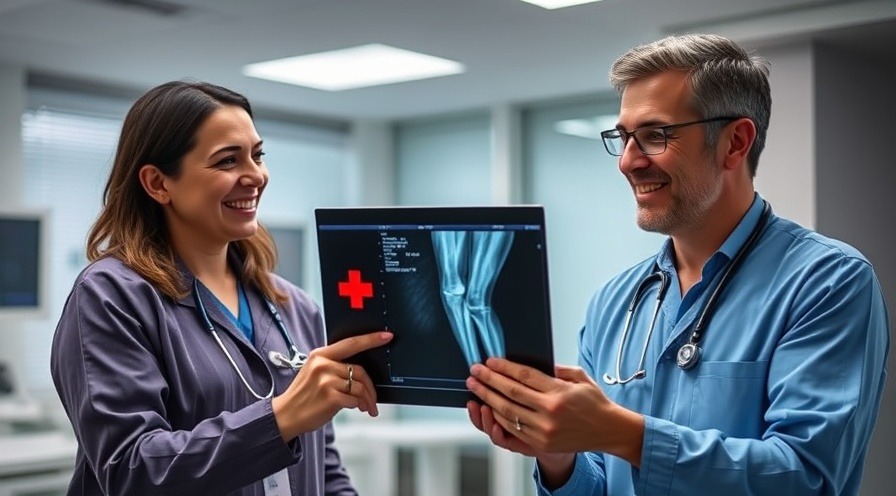
Unpacking the Utility of Knee Ultrasound: What You Need to Know
When someone mentions knee pain, the mind often races to potential solutions—pain relievers, physical therapy, and at times, imaging tests like ultrasounds. However, a recent discussion among two doctors, featured in the video "Knee Ultrasound: Are they useless?", challenges the prevailing notion that knee ultrasounds are a necessary diagnostic tool.
In 'Knee Ultrasound: Are they useless?', the discussion dives into the limitations of knee ultrasounds, exploring essential insights that sparked deeper analysis on our end.
Why Most Knee Ultrasounds Are Unnecessary
Dr. Paul Zalzal and Dr. Weening reveal that, in the majority of cases, knee ultrasounds do not significantly contribute to diagnosing issues such as knee pain. Their stance is clear: unless specific conditions are present—such as a rupture of the quadriceps or patellar tendon—ultrasounds may not provide any critical information. Instead, clinical evaluation often suffices. So, what prompts physicians to order this imaging test in the first place?
Understanding the Limitations of Ultrasound Technology
Ultrasound utilizes sound waves to create images of structures within the body. Despite its effectiveness in other areas—like examining organs or soft tissue—it falls short when it comes to viewing internal knee structures like the meniscus or ACL. For these deeper tissue assessments, an MRI is more appropriate. This limitation is why Dr. Zalzal discourages patients from opting for knee ultrasounds unless they suspect a tumor or a traumatic injury.
The Cost-Effectiveness Dilemma
Often, patients find themselves caught in a web of medical decision-making that puts them through unnecessary tests and expenses. For example, if an X-ray shows minor arthritis, doctors might feel pressured to order an ultrasound because MRIs can be costly and time-consuming. This leads to a cycle of unnecessary procedures. Dr. Zalzal emphasizes that patients should feel empowered to advocate for themselves, saying "You are in charge of your health." This empowers people to make informed choices regarding their medical tests.

Takeaway Tips for Patients
If you’re grappling with knee pain and your doctor suggests an ultrasound, it’s prudent to ask why this is being recommended. Relying on clinical evaluations for evident conditions might spare you from undergoing an often non-contributive test. In Dr. Zalzal's words, “Just say no to knee ultrasounds, unless you have a reason like a tumor or an extensor mechanism disruption.”
Your Health, Your Choice
Understanding the limitations of certain medical tests, like knee ultrasounds, can significantly improve your interactions with healthcare professionals. Knowledge is power, and being armed with information can make all the difference in navigating health-related decisions.
If you’ve experienced the frustration of unnecessary medical imaging, it's time to share your experience. Knowledge is not just about consuming information; it’s about spreading it. Talk to your friends and family about the choices they can make regarding knee pain—sometimes, just understanding better can prevent unnecessary procedures.
 Add Row
Add Row  Add
Add 




 Add Row
Add Row  Add
Add 

Write A Comment